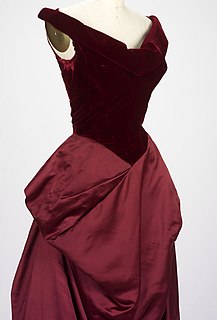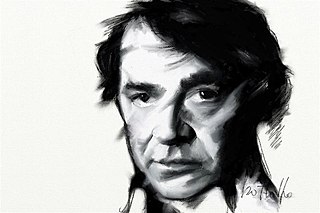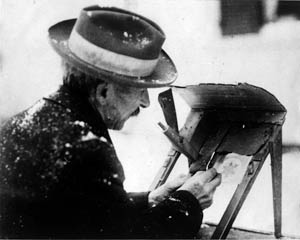A Quote by William Shakespeare
Beauty's a doubtful good, a glass, a flower, Lost, faded, broken, dead within an hour; And beauty, blemish'd once, for ever's lost, In spite of physic, painting, pain, and cost.
Related Quotes
Love may, indeed, love the beloved when her beauty is lost: but not because it is lost. Love may forgive all infirmities and love still in spite of them: but Love cannot cease to will their removal. Love is more sensitive than hatred itself to every blemish in the beloved… Of all powers he forgives most, but he condones least: he is pleased with little, but demands all.
God makes it clear that his image bearers must live in dynamic communion with one another, thereby discovering and celebrating the good gift of one's own gender and that of the other. With a cross-shaped lens, we behold the beauty of man for woman and woman for man. None of us has ever lost that original design. No matter how broken we have become, we have never lost the potential to be good gifts for others!
He thought that in the beauty of the world were hid a secret. He thought that the world’s heart beat at some terrible cost and that the world’s pain and its beauty moved in a relationship of diverging equity and that in this headlong deficit the blood of multitudes might ultimately be exacted for the vision of a single flower.
He looked at her as a man looks at a faded flower he has gathered, with difficulty recognizing in it the beauty for which he picked and ruined it. And in spite of this he felt that then, when his love was stronger, he could, if he had greatly wished it, have torn that love out of his heart; but now when as at that moment it seemed to him he felt no love for her, he knew that what bound him to her could not be broken.
And once again I believe that nothing that's important really becomes lost. We just delude ourselves, thinking that we own the things, the moments and the others. Still with me are all the dead persons who I loved, all the friends who turned away, all the happy days that faded. I lost nothing but the illusion that everything could be mine forever.
Under the microscope, I found that snowflakes were miracles of beauty; and it seemed a shame that this beauty should not be seen and appreciated by others. Every crystal was a masterpiece of design and no one design was ever repeated., When a snowflake melted, that design was forever lost. Just that much beauty was gone, without leaving any record behind.
Do you think you can love too much? Or experience too much beauty, at the cost of too much pain? Do you think when art is defined by expressing so much beauty and so much pain, just to be able to cope with both - and bring other people something creatively beautiful at the cost of that pain - that we can draw a line of 'normalcy'? It's important to think about.






































